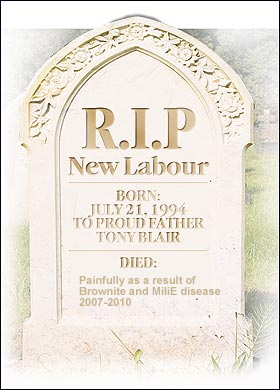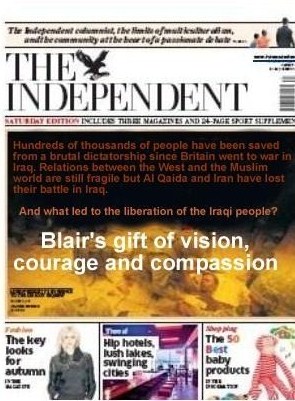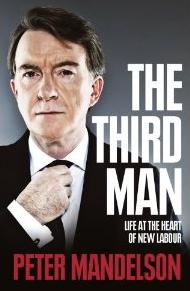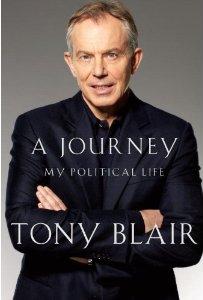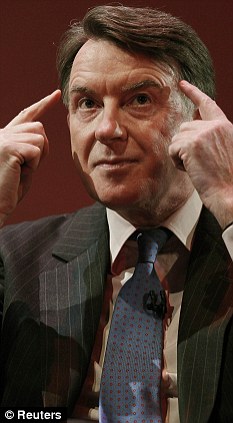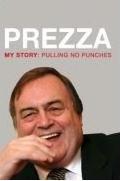Original Home Page – And another very early post from this blog
Current Latest Page
All Contents of Site – Index
Sign the Ban Blair-Baiting petition here
Comment at end
3rd August 2010
This is the last of the reports of John Prescott at the Iraq Inquiry. [In grey I have headed each section for content identification.]
Go to the Iraq Inquiry website for the entire video of the evidence of John Prescott, and the full (107 pages) transcript.
_____
ASKED BY CHAIRMAN IF HE’D LIKE TO SAY A FEW PRELIMINARIES
(P1-4 of transcript) – [Prescott’s position, responsibilities in government. Tony Blair’s approach. International Interventionism]
RT. HON. THE LORD PRESCOTT: I would, Sir John, if I could. First of all, to express my deepest sympathy to the families of those who lost their lives in Iraq. As you pointed out, Sir John, my role as the Deputy Prime Minister between 1997 and 2007, of course, was to support the Prime Minister and I used to meet him two or three times a week privately. As well as running The Department of Environment, Transports and Regions and Then the office of the Deputy Prime Minister, I also chaired nine of the Cabinet committees and vice-chaired a further seven committees in which most of the Government’s business was done.
I supported the Prime Minister in his international duties, most notably on the climate change by helping secure the Kyoto Agreement — Kyoto Protocol, the UK’s EU presidency and chairing the China task force. Can I just say I have learned an awful lot reading the evidence given to this Inquiry especially with regard to the Government’s decision-making in Iraq. I chaired four of the Cabinet and three War Cabinet meetings that discussed Iraq in the absence of the Prime Minister and also attended 23 of the 28 War Cabinet meetings.
I was reminded in your discussions during this evidence of what was called the seminal moments when the perception of the risk of Iraq changed, particularly in America on 9/11. I would like to point out in my view what alsochanged on 9/11 was the Prime Minister when the Prime Minister and I were watching the planes crash in the world towers while they were to the TUC conference from bright on [sic. Brighton]. The Prime Minister turned to me and said, “This is a world changing event”. I replied, “Not unless we deliver social justice for the Palestinians through the Middle East process”. To my mind it was a real achievement to persuade the United States to follow the UN route on Iraq and provide a road map for the Middle East process, sadly yet to be realised.
The Prime Minister passionately believed in the humanitarian interventions and we used to discuss that from time to time, which he set out in his speech in Chicago in 1999 which you have discussed in your evidence as The Doctrine of International Community. This was consistent in his approach to Kosovo in 1999, Sierra Leone in 2000 and Afghanistan in 2001, policies that were all endorsed by the Cabinet and Parliament. This belief in humanitarian interventionism stemmed from his desire to prevent the repeat of the genocide that he saw in Rwanda in 1994, when the UN failed to act and almost 1 million people were murdered Finally, Sir John, I note the concerns expressed in the Inquiry about the move to a more presidential style of Government. I believe modern politics, bilateral discussions almost immediately between world leaders, and the 24-hour news cycle have all played their part in this inevitable process.
_____
(P6-7) [Timetable/planning/conflict/Cabinet/military]
RT. HON. THE LORD PRESCOTT: One that caused some concern was when you are dealing with the detail of a policy, you got into different timetables between the military planning and that of the political one. Tony Blair, the Prime Minister, had convinced us all, and we were absolutely supportive, that at least the Americans were now going along the UN route.
How do you have a discussion in the Cabinet if the military people are beginning to say, “We need a longer timetable to make our decisions”, and the political one of, “How far can you go to get a second resolution?” That is a conflict. I think if that had gone to the Cabinet there would have been a big discussion and then the press would have gone out saying, “You are not trying to find a UN solution. You are just looking for a military one.” There are difficulties of what confidentiality can you maintain in some Cabinet committees or the Cabinet itself? I note that Jack Straw in his evidence did actually say there were times he couldn’t give the full information because he thought it would leak. I think that’s unfortunate but it is the reality of political life, and does affect the general atmosphere of debate about Iraq.
____
(P9-10) [UN route/USA/UK commitment]
RT. HON. THE LORD PRESCOTT: I was a strong advocate, as indeed the Prime Minister was, that our priority must be to secure a UN resolution. Though, as you know from the discussions that went on in Camp David with the Americans, the American military were pressing for a commitment and then they could make their planning. We found that very difficult. There was a real problem between military planning and political decision-making, and another point that came out, which we used to discuss: where are we going in the end of this? If you are going into war, will the Parliament then, and a lot of discussion, be given the right to make the decision? Parliament did and was given. That was quite critical, though the Americans felt that you didn’t have to do that, but they had a regime change argument from Clinton’s resolution some time before.
Ours wasn’t that and it seriously wasn’t that. It was a hope we could get a US solution. So while we discussed these all things, it was hopefully to win the UN argument that if there was to be an intervention and if it was in that sense regime change, it was done by international agreement through the UN and the resolutions, but as you know, as it is now history, we were not able to achieve that. Though in the process of discussion you had to have these facts in mind.
_____
(P16 -21) [Intelligence. Tittle-tattle. JIC. Robin Cook]
SIR RODERIC LYNE: Okay. Shall we move on to the intelligence then, the JIC assessments?
RT. HON. THE LORD PRESCOTT: Yes. That’s interesting, because when I kept reading them, I kept thinking to myself, “Is this intelligence?” It is basically what you have heard somewhere and what somebody else has told everybody. That’s presumably how intelligence is brought to bar [sic. “bear”]. So I got the feeling it wasn’t very substantial but it clearly was robust. As we move more and more whether there was evidence about — involved in the weapons of mass destruction, the conclusions were a little ahead I think of the evidence we had, but perhaps that’s the way it is. So I am curious to have then read the evidence provided I think in 2004 by JIC, if we look at their recommendations they made to us, they were frankly wrong and built too much on too little information. I think that was made by a number of the witnesses to you. That was my impression at the time, but, you know, I just thought, “This is the intelligence document. This is what you have”. It seemed robust but not enough to justify that you could do that. What you do in intelligence is a bit of tittle tattle here and a bit more information there and a judgment made, isn’t it, to be fair.
SIR RODERIC LYNE: Did it convince you that Iraq posed a serious and growing threat to the region and to UK and western interests? You say it wasn’t very substantial.
RT. HON. THE LORD PRESCOTT: I think you are right, there was a threat to the region anyway by its actions, whether it was an invasion of Kuwait or whether it was primarily this war between Iran and Iraq. It was obviously not a very stable situation there. I didn’t need JIC to tell me that. Where we were concerned with the intelligence on JIC was to whether he was cooperating with the resolutions from UN in giving information as to whether he was actively involved in weapons of mass destruction. So to be fair to the intelligence agency, when they said in our report which led, in fact, to the information produced on the document, that there might be something happening in 45 minutes, they have this ability, they have these missiles, you do tend to accept that’s the judgment and there must be something in it. I didn’t totally dismiss it. I didn’t have any evidence to feel that they were wrong, but I just felt a little bit nervous about the conclusions on what I thought seemed to be pretty limited intelligence.
SIR RODERIC LYNE: Did it suggest there was a nuclear threat from Iraq?
RT. HON. THE LORD PRESCOTT: It certainly was leading to: they are going to do that. I mean, I see in the interview with the intelligence agency they say, “Perhaps we should have used a different word than we did there”, but I think in the main the words they did use did lead you to believe that they had believed it and so did other intelligence agencies, that they were actively involved in developing weapons of mass destruction and the missiles to deliver it.
SIR RODERIC LYNE: Chemical and biological weapons, but didn’t the JIC assessment suggest that the nuclear programme was effectively frozen, although he was trying to make some efforts to procure materials? Wasn’t that the message from them?
RT. HON. THE LORD PRESCOTT: It was, yes, but I think the suggestion also was: this was a serious situation. I mean, since then, with hindsight, we do see that they are perhaps thinking they had not gone as far as they had done that, that the early stages of dealing with the weapons of mass destruction had been effectively dealt with, but at that stage we were saying it is still an active part of the use of them and here was a guy who had used them. This was not something who was just developing something, he had actually used them against his own people, particularly in regard to chemical weapons.
SIR RODERIC LYNE: Apart from the JIC written assessments did you receive, as some other ministers have told us they received, direct briefing from the Intelligence Services?
RT. HON. THE LORD PRESCOTT: I did request a discussion once or twice when — I think it was John Scarlett and others, if I remember their names. You obviously did take the chance to have a chat with them about it. They were very forthcoming but you were left with the impression that the intelligence was that there was an active part in Iraq in developing weapons of mass destruction, which was the matter which was absolutely crucial to the observance of whether there was any breach in the UN resolution, which then led to the legal judgment that if there has been a breach, then there is a legal right. So it was important for us to form an opinion as to whether that was happening.
SIR RODERIC LYNE: So you were convinced from what you read and what you heard in briefing of the seriousness of the threat of weapons of mass destruction from Iraq?
RT. HON. THE LORD PRESCOTT: I think I liked to exercise a kind of sceptical judgment, but I don’t think I was in a position to say, “You are wrong”. I didn’t have that kind of evidence. It was crucial to the whole issue.
SIR RODERIC LYNE: Yes. In his resignation speech Robin Cook said: “Iraq probably has no weapons of mass destruction in the commonly understood sense of the term.” Now did that view of his worry you at all? Did it diminish your confidence in what you were being told?
RT. HON. THE LORD PRESCOTT: No, because in the discussions, particularly in the Cabinet, I don’t think Robin was as hard in there as he might have been in these bilaterals that went on, because I think there is a very strong feeling in a Labour Government not to lead to divisions of thinking, though it did lead to his resignation in the end.
_____
(P27) [JIC. Manningham-Buller. JIC]
SIR RODERIC LYNE: Manningham-Buller.
RT. HON. THE LORD PRESCOTT: I am sorry. Manningham, she was on the JIC committee that actually produced theactual document that was used by the Prime Minister to say, “This is a threat”. Her argument, as I hear, is that — from what I hear in the Inquiry, “I was only a junior partner [if you like] and I didn’t influence it”. Well, you were in the document that we were all looking as JIC intelligence. Though I do recognise her responsibilities were the connection to terrorism and whether the intervention in Iraq was going to make it more difficult to deal with terrorism in this country. She probably had a point. I think she did have a point. But she did sit on JIC, and the points you are making about the Prime Minister and his statement to the House were based on that document and that’s why that document was produced.
_____
(P29) [USA on military course. Blair – UN]
BARONESS PRASHAR: So your understanding was that you were just feeding the information back to Prime Minister Tony Blair and you didn’t get a reaction back from him as to what he was thinking at the time?
RT. HON. THE LORD PRESCOTT: His thinking was: yes, I am aware that they are really on this road, but I want them to go via the UN. His mind was on how could he achieve that, and I think in his evidence and the reports of the meeting, he was quite cock-a-hoop, I think Mr Manning says that as well in his evidence, to have achieved that. I think that was quite an achievement.
_____
(P30-33) [Blair commitment to Bush. UN. Campbell. Meyer. No doubt about Blair’s approach to USA relationship]
BARONESS PRASHAR: Did you, in the course of these discussions with the Prime Minister, become aware of the extent to which he had committed himself to support the President over Iraq in the first seven months of 2002?
RT. HON. THE LORD PRESCOTT: I was certainly aware that the Americans wanted him on board, and —
BARONESS PRASHAR: That’s what they wanted, but what was the level of his commitment? Were you aware of what kind of commitment he had given?
RT. HON. THE LORD PRESCOTT: I don’t think he was — I think the evidence you have received here was that he was not giving any commitment and he certainly never told me that he had, that he was clearly being pressed on the matter. His, obviously, policy was to go for the UN.
BARONESS PRASHAR: But Alastair Campbell, when he gave evidence to us, said, and I quote, what he said: “If that cannot be done and the only way left is through regime change, through military action, then the British Government will support the American Government. That is the message he will have been putting over.” Was that your understanding?
RT. HON. THE LORD PRESCOTT: No, I wasn’t at that meeting.
BARONESS PRASHAR: No, you were not at that meeting, but you said you saw him regularly. He must have given you some indication of the kind of commitment he had given to President Bush?
RT. HON. THE LORD PRESCOTT: No, he didn’t say he had given any commitment and I don’t think it has necessarily been proved. There are people — Sir Anthony Meyer, he said something else and he was not even at the meeting. So, I mean, there are disputes about these issues. He didn’t tell me, since that’s the direct question, that he had promised that eventually he would stay with them.
I had no doubt about this man, that he was always clear that every Prime Minister has to have — to make up his mind what is the relationship with America. I think there is a lot of evidence for that. He clearly knew it was important. His international thinking was, “You have to work with America”, and indeed, therefore, knew probably at the end of the day if he failed in the UN, and he was optimistic of getting agreement, that he wouldn’t have to go down that road of a military intervention solely with America but perhaps with the UN.
But he never did tell me whether he had come to any agreement. I am sure it would be in his mind that the Americans — it was President Bush who said, “I am going to go through the UN”. There were many people in America who didn’t agree with that, particularly on his own staff, but he did do that. At the end of the day the question would come, and I was aware of it of course, and he did tell me this, that the Americans were quite prepared to go without us. He gave the offer to Blair, “You don’t have to come”. He told me that, but it is the nature of Tony Blair that he had the understanding and priorities that he felt he would have to bring it back to the Cabinet.
Even if he did make that decision, he did come back to the Cabinet and he did go to Parliament. Those decisions then confirmed that policy. So even if he had done that, it wasn’t him that made the final decision, as we always said to the Americans, it had to be a political one, and it had to be Parliament. That’s what happened.
BARONESS PRASHAR: So your understanding was that Tony Blair was always trying to get the United Nations route and that he had not given a firm commitment of support to President Bush?
RT. HON. THE LORD PRESCOTT: I think — I don’t want to get myself in the position of others that are making judgments about whether he did or didn’t. I don’t really know. I don’t know. I would have to say honestly. I think some of the others should say they don’t know. Alastair Campbell is a little different, because he was sitting in some of those kind of meetings. And I think the point — it was the same argument about regime change. The American Ambassador — what was it — I call him Red Socks Guy. I think his real name is Christopher Meyer.
_____
(P69-70) [Supporting the PM. Legal. Jack Straw. Robin Cook. Alastair Campbell]
SIR LAWRENCE FREEDMAN: Did you face any — he indicated to us this was a difficult time for him. None of your colleagues were happy. You weren’t happy. Did you ever think, yourself, that when it came to the crunch you might not be able to go along with it?
RT. HON. THE LORD PRESCOTT: No, I would support the Prime Minister if he had the legal judgment and I think that’s exactly what I would do, and did so, in fact, calling constantly in Cabinet to maintain our unity in Cabinet, which I think is one of my responsibilities. If I didn’t think it was right then I could resign like Robin Cook did or anyone else, but there would be political fall-out from that. I don’t think there is any doubt. All of us were faced: do you want to then, if you held the view Jack Straw said he held, make a decision? Stay in or get out.
SIR LAWRENCE FREEDMAN: Alastair Campbell, confirming what you have just said in some ways, said after discussions on Iraq at 16 January, which is a couple of months earlier, 16 January 2003 Cabinet, you did what he described as a very passionate wind-up in support of the Prime Minister. Did you see that as your role?
RT. HON. THE LORD PRESCOTT: I think he refers to the fact I played that part in that passionate role. I was always very strong, and you have to remember the kind of culture of the Labour Party. We had come through a Government that had for many years split itself constantly and we were desired to avoid that at any cost. It was a very strong thing of Tony Blair. I think that influenced the nature of Government we had, because there was an attempt to avoid all the complaints, divisions. I have often heard people say, “Labour Governments back in the 60s used to meet in Cabinet for about 12 hours or half a day”. Yes, because they were so bloody divided on, happening that the IMF was closing down the economy basically and forcing cuts. That is why they were long. That was not the nature of a British Cabinet under Tony Blair. We had a successful economy. We were all increasing our resources in various places. There was not that kind of difficult significance. There was a desire to maintain the unity. Iraq could have split it, I think, if the Cabinet said, “No, no, no”, but those who may have had those reservations, Robin was clear: “I have not got the second resolution. I am getting out.”
_____
(P71-72) [Side of the mouth briefings. Clare Short]
RT. HON. THE LORD PRESCOTT: I think the briefings and out of the side of the mouth was more to do with Blair/Brown and the kind of divisions we had in that context rather than Iraq. I used to complain, “Why can’t they speak more openly about it?” Sometimes I thought Jack was involved in it and had to personally say it to him.
SIR LAWRENCE FREEDMAN: So that reference is not specifically to Iraq but these things we have also been reading about elsewhere?
RT. HON. THE LORD PRESCOTT: In the reference I used that talking out of the side of the mouth, talking to journalists and saying, “Can I tell you this”, or at some dinner party in London where they felt the Government and Blair was wrong about these things. I think that was one of the consequences perhaps of unity. You know, you keep unity so people have to express it in a way they don’t want to be open about it so they talk out of the side of their mouth, much to the delight of journalists, but actually it does lead to a certain amount of discomfort within the Government. That’s the nature of the political game we are in.
SIR LAWRENCE FREEDMAN: But that was a reference to a more general problem than a specific problem?
RT. HON. THE LORD PRESCOTT: Not Iraq. To be fair, Clare was quite open about how she disagreed with it, both in the Cabinet and outside. That did lead to situations where people had doubts, people who have given evidence, like Jack Straw, who had doubt whether he could give the detailed papers to the Cabinet in case there were leaks. There were clear references in some cases they thought it was Clare. Clare was not so much out of the side of the mouth, she was direct out front. That was the nature of Clare.
SIR LAWRENCE FREEDMAN: Did you share that concern?
RT. HON. THE LORD PRESCOTT: Pardon?
SIR LAWRENCE FREEDMAN: Did you share the concern?
RT. HON. THE LORD PRESCOTT: In some cases I did share that. That’s what the Cabinet was about.
_____
(P76) [Prescott would do the same again]
SIR LAWRENCE FREEDMAN: So in your book you say, looking back at the Iraq invasion, you mention its tragic effects: “I would still do the same again.” That remains your position?
RT. HON. THE LORD PRESCOTT: I think so. That was the conclusion I came to, because I — as long as we are on the UN route. If it was simply saying: America and the UK are the policemen of the world therefore we have to do it, I don’t think I could have gone along with that. I am sure we wouldn’t, and I don’t think you could have got the party to go along with that. I mean, President Bush was not the favourite candidate of the Labour Party.
SIR LAWRENCE FREEDMAN: Okay. Thank you.
_____
(P94-96) [Other parliamentary means of deciding on war]
SIR LAWRENCE FREEDMAN: Just finally, you have mentioned the importance with Iraq of Parliament and gaining Parliamentary approval —
RT. HON. THE LORD PRESCOTT: Yes.
SIR LAWRENCE FREEDMAN: — for what happened. I am interested in your views about: are there other means by which Parliament can scrutinise a Government’s actions in a similar situation? Do you think — the Parliamentary vote came right at the end of a long process. Do you think Parliament might have been brought in earlier, for example?
RT. HON. THE LORD PRESCOTT: No, because — I now realise — whether it is from evidence given to the committee — but, you know, first of all, there are many tens of thousands of questions that have been asked over this period in Parliament. There have been numerous debates. There have been Select Inquiries. There have been statements by the Prime Ministers. The levels of accountability over Iraq in Parliament were very, very considerable. It was only at the last moment, when Tony Blair had always been insistent, and it was the Cabinet view, that, in fact, there would have to be a democratic vote. The Americans found it difficult to understand we would have to go back to Parliament to do it, and I think there was constant complaint, “Surely you don’t have to go back to that”, but we did.
So that vote at the end of the day — and what I think was important to Tony’s mind when you look at that vote, because there was a quite a large revolt — was it about 124 I think on that, something like that? I think what was the concern of Tony, and from our point the party view, that we were carrying the majority of our Labour Party members. I think politically if we had not been able to do that — and I think Tony was very worried about that, and it looked as if we would get it because other parties were supporting it, and so those debates and those issues were an important part of it.
You cannot say there was not debates and accountability of a democratic accountability in Parliament. There was and it wasn’t just that one vote. Every time the Government won the vote.
(P96-97) [Americans. Parliamentary endorsement. Quaint.]
SIR LAWRENCE FREEDMAN: You just mentioned then the American view that this was an odd thing to be doing. How were you aware of that? Was this something that the Prime Minister said to you, that, “The Americans are wondering why we are doing it”? Did you hear it that way?
RT. HON. THE LORD PRESCOTT: Yes, in the discussions you would hear, because Tony used to make clear that, “At the end of the day whatever happens here, it must be endorsed by Parliament”. It was his very firm view. I think the American presidential system, they thought this was rather quaint, because the President has the powers to make these decisions. He had to point out, “In a Parliamentary system that is not the case. They can, in fact, remove us. They don’t have to wait for November, whenever, the election of the president. That can happen in Parliament”. Prime Ministers have to be constantly aware of that.
SIR LAWRENCE FREEDMAN: Then you just mentioned the concern about having a majority of the Parliamentary Labour Party.
RT. HON. THE LORD PRESCOTT: Yes.
SIR LAWRENCE FREEDMAN: What do you think would have happened if you had failed to get a majority of the Parliamentary Labour Party, though still been able to get through on a Conservative vote?
RT. HON. THE LORD PRESCOTT: Very difficult, but I think at that stage we would have gone on. I mean, the troops were in the field. Things were going. This is a vote just before they happened. I mean, we would have to live with that in reality. It wouldn’t be a happy situation. It wasn’t happy with 124 against. We would not like that, but, you know, we were going in. The troops were there. You could not alter that fact, though I have to admit if we had been defeated, then the Government would have been defeated, and therefore we would not have gone in. I mean, the vote did matter, but for us politically it was important that we could try to carry the majority of our own members.
_____
(P99 – 101) [Closing remarks]
SIR JOHN CHILCOT: Thank you. I think that brings us to the point where it would help us to have your sense of — because we are a lessons learned Inquiry, what are the most important lessons you can draw on from the Iraq experience over all the years, and then any further reflections you may have.
RT. HON. THE LORD PRESCOTT: I have thought about that and wondered, as I have just said in my last answer, could we have done more? We would have liked to have avoided it, but it didn’t happen. I think the answer I want to give myself, though, is impressions at the end, if you give a witness an opportunity to say something, Sir John.
Reading the evidence and listening to all the arguments, I know it is quite fashionable to be critical of Tony Blair inside and outside this Inquiry.
We have seen a few people gloss over their part of the history and what happened, but let me say that no-one in Government took this decision to go to war lightly. We thought considerably about it. I personally and privately witnessed the Prime Minister agonise over each and every death over Iraq, civilian and military, British and Iraqi.
I learned that true leadership is not about having the benefit of hindsight. It is about having a gift of vision, courage and compassion, and I believe that Tony Blair had all those three.
If you want to see if his humanitarian interventionism, which has been a discussion here, succeeded, then go to Kosovo and go to Sierra Leone. Hopefully we will soon be able to say the same for Afghanistan and Iraq and finally welcome our brave troops back home, confident of a job well done.
I think that’s my conclusion, having worked with Tony Blair, and witnessed it at close hand, and privileged to do so. That’s the point I want to make as a lesson that people should take into account when they are looking at this Iraq Inquiry.
SIR JOHN CHILCOT: Thank you very much, Lord Prescott. Anything further you want to say?
RT. HON. THE LORD PRESCOTT: No.
_______________

ALL POSTS IN THE JOHN PRESCOTT IRAQ INQUIRY SERIES
Iraq Inquiry website Home page
Video evidence of Tony Blair and entire transcript from his evidence.
Video evidence of John Prescott and entire transcript of the evidence of John Prescott.
Sign the Ban Blair-Baiting petition here
A recent comment from an Albanian, Mr Leonard Dedej from Tirana – “It takes big leaders to make the hardest turns in peoples life…mr Blair is a big leader and a great man for millions of people in Balkans!!!for stopping a savage war!about Iraq I believe that the press wherever it is has not the right to judge on this issue because it simply is to small to judge!!history will judge mr Blair!as long as it is an ongoing war no one can blame mr Blair,after all he started something for a big reason..the press its often wrong because it fights for audience!!!”

 Or – Tweet this post
Or – Tweet this post Blair Supporter
Blair Supporter 
 Diane Abbott MP
Diane Abbott MP 







